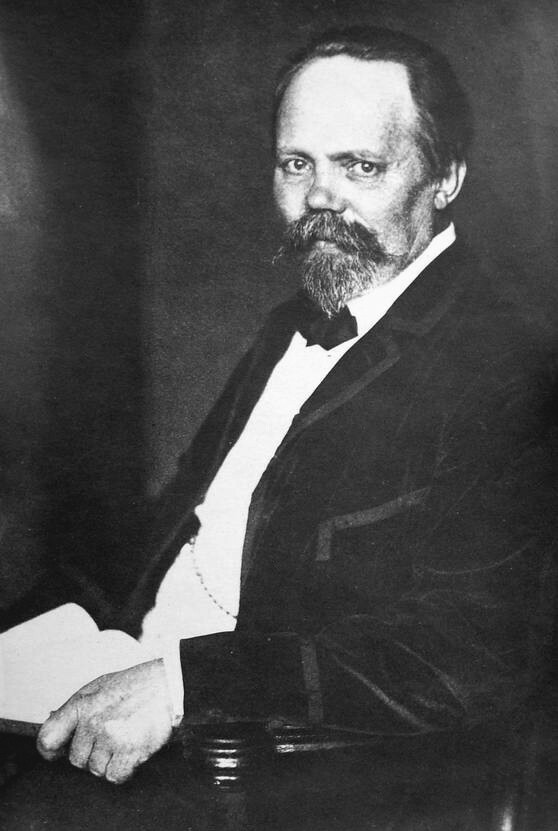Humperdinck was born in Siegburg in the Rhine Province in 1854. After receiving piano lessons, he produced his first composition at the age of seven. His first attempts at works for the stage were two singspiele written when he was 13. His parents disapproved of his plans for a career in music and encouraged him to study architecture.
But he began taking music classes under Ferdinand Hiller and Isidor Seiss at the Cologne Conservatory in 1872. In 1876, he won a scholarship that enabled him to go to Munich, where he studied with Franz Lachner and later with Josef Rheinberger. In 1879, he won the first Mendelssohn Award given by the Mendelssohn Stiftung (foundation) in Berlin.
Hänsel und Gretel
Humperdinck's reputation rests chiefly on his opera Hänsel und Gretel, on which he began work in Frankfurt in 1890. He first composed four songs to accompany a puppet show his nieces were giving at home. Then, using a libretto and thematic suggestions by his sister Adelheid Wette, rather loosely based on the version of the fairy tale by the Grimm Brothers, he composed a singspiel of 16 songs with piano accompaniment and connecting dialogue. By January 1891, he had begun working on a complete orchestration.The opera premiered in Weimar on 23 December 1893, conducted by Richard Strauss. With its highly original synthesis of Wagnerian techniques and traditional German folk songs, Hansel and Gretel was an instant and overwhelming success.
Hansel and Gretel has always been Humperdinck's most popular work. In 1923, the Royal Opera House (London) chose it for their first complete radio opera broadcast. Eight years later, it was the first opera transmitted live from the Metropolitan Opera (New York).




